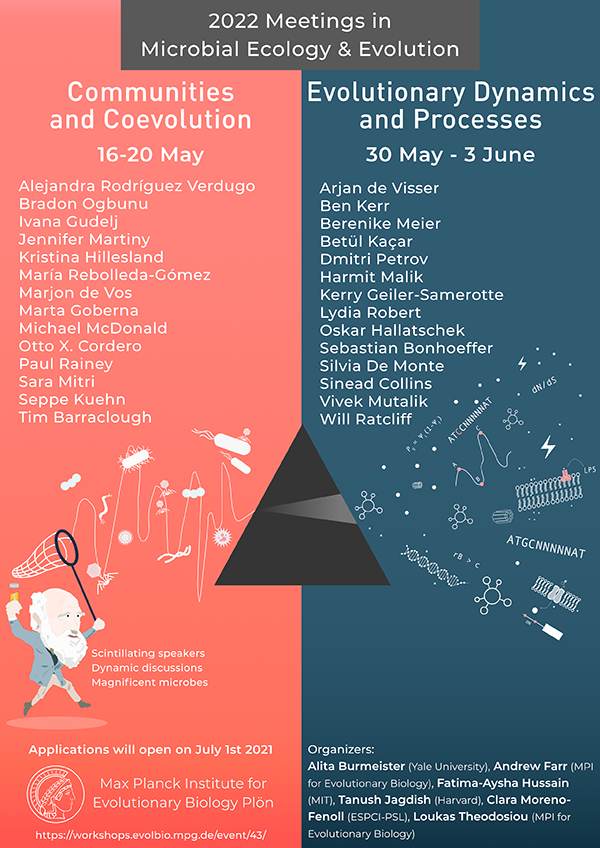Speaker
Description
The study of evolution has traditionally focused on the effects of selection on individuals. In recent years, attention has turned to the possibility of selection on communities. Yet much remains to be understood about the conditions necessary for selection to work on collectives. Previous theoretical works have shown that communities can evolve as units of selection provided that the communities themselves are endowed with Darwinian properties. In the laboratory, the experimenter can readily ensure discreteness of communities and thus variation among the units. Reproduction can be effected by taking multiple samples from a given community and using these to found offspring communities. What is undefined is the basis of the parent-offspring community relationship. In the absence of interactions, this is governed by stochastic sampling effects. Our interest is in the evolution of interactions that improve the parent-offspring relationship and are thus the basis of heredity. In a proof of principle experiment, our community is comprised of two populations of self-replicating plasmids nested within single replicating bacteria cells. In particular, we will use two ColE1-like plasmids that differ only in carrying a different fluorescent reporter, green or red. As the plasmids share the same origin of replication, each cell may end up with different proportions of green and red plasmids, thus producing a green-yellow-red phenotype spectrum. This phenotype is in fact a community property. We will then select for perfect yellow bacteria in an evolutionary experiment and look for genetic changes in the plasmids that generate heightened inheritance of the collective phenotype.

